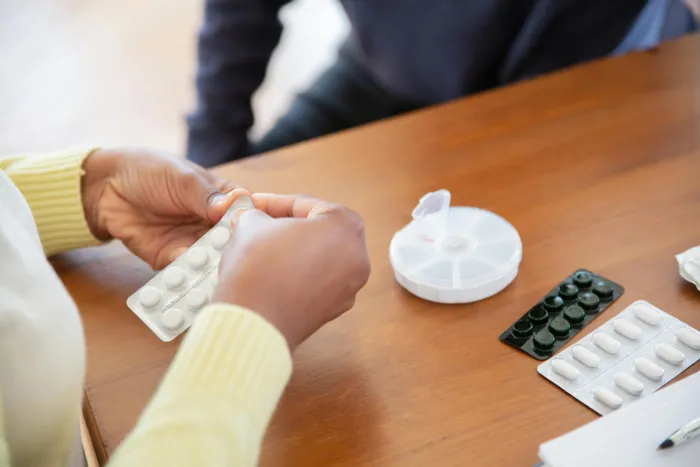In clinics from the North West, Limpopo and Northern Cape, young people are bridging critical gaps in HIV care, through two innovative programmes. Coach Mpilo and Zvandiri are initiatives that directly address critical global UNAIDS health targets of 95-95-95. These targets call for 95% of people living with HIV to know their status, 95% of those diagnosed with HIV to be on antiretroviral treatment (ART), and 95% of those on treatment to achieve viral suppression.

Remarkable young people across the country are transforming healthcare in their communities, proving that age is no barrier in making a profound impact on public health.
Image: Supplied
To support this goal, Anglo American, in partnership with the provincial departments of health, introduced two comprehensive healthcare initiatives for their host communities. Coach Mpilo employs men living with HIV to provide peer support and guidance to other men who are newly diagnosed or those returning to care after a treatment interruption. Zvandiri’s (“As I am”) Children Adolescent Treatment Supporters (CATS) and Young mentor Moms (YMMs) connect young people aged 0–24, providing peer and overall support to assure health and hope. Through these two programmes, participants gain a sense of belonging, while employees bring hope and healing to communities that need it most.
These interventions assist strengthening health while promoting adherence to HIV treatment in rural communities. Since their inception, the programmes have seen a significant impact – increasing adherence to treatment from 28% to 95% in the Limpopo region. This underscores the effectiveness of targeted governance and evaluation tools, enabling healthcare managers to promptly address quality gaps and establish sustainable improvements.
“The personal experiences these young people bring creates trust that’s often missing in traditional healthcare settings: they’re not just providing medical support – they’re providing hope,” noteD Sibusiso Tenza, Community Health and Wellbeing Principal at Anglo American.
There are numerous factors that contribute to adherence challenges such as stigma, treatment fatigue and a general lack of support, education, and counselling.
Omphile Phiri (20) from North West province knows first-hand the challenges young men face when dealing with HIV. As a coach in the Coach Mpilo programme, he uses his own journey of acceptance and treatment adherence to guide others through similar struggles. “Males are struggling with getting on with their treatments,” Phiri explains. “When I get to a patient’s home and they become aggressive, I understand their fear. They worry I will tell people about their status. But I share my own as an example – I show them this is the right way.”
Lerato*, a 26-year-old CATS and mentor in the Northern Cape, helps families to navigate not just medical treatment but also the emotional journey of living with HIV. Her motive is to continue fighting the stigma about this disease through young people. “HIV is not a death sentence, just an opportunity to take good care of your health,” she said.
Many people, particularly those who are new to antiretroviral treatment (ART), struggle to maintain consistent adherence to the treatment – resulting in poorer health outcomes and potential development of drug resistance.
In Limpopo, another Coach Mpilo coach, 23-year-old Sylvester Maluleke, is specifically supporting men with HIV treatment adherence. Despite being young, he’s learned to connect with older men by meeting them at their level of understanding, and providing the patient, empathetic support he wished he had received. His advice to young men is clear: “Don’t be afraid to take a step. Men shouldn’t be afraid to talk – let your voice out.”
In the Northern Cape, 21-year-old Gosego* works as a CAT. Despite being the first CAT at his facility, he’s already seeing the impact of peer-to-peer support. His message to fellow youth focuses on persistence: “Don’t give up: we might be young, but together make a noticeable difference – push until you make it. Nothing is too difficult to get through.”
“What we’re seeing in these communities is revolutionary – young people taking ownership of their health and lifting others with them. This isn’t just about treating HIV: it’s about building resilient communities where health becomes a shared responsibility across generations,” concluded Tenza.
* Names have been changed to protect identities
Related Topics: